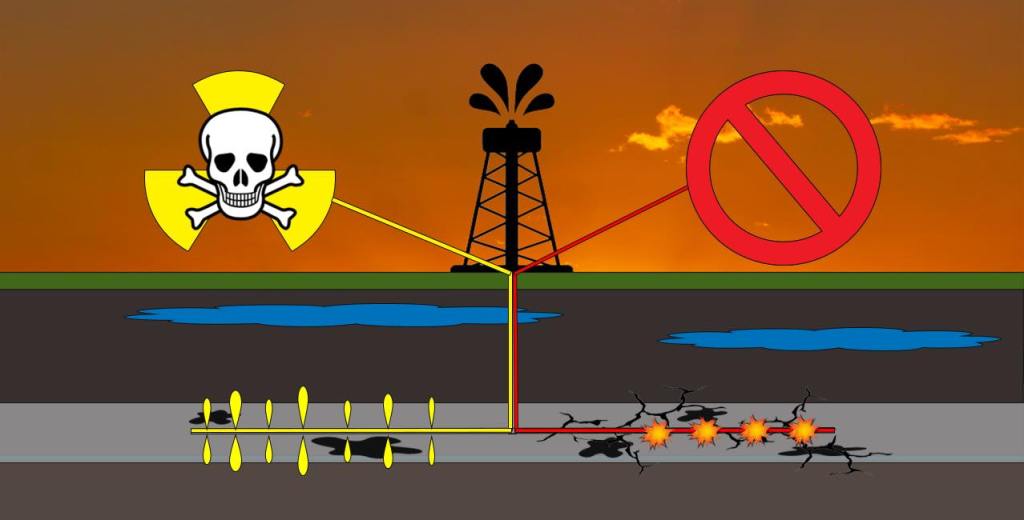We take another look at the fracking moratorium in England ahead of its 1st anniversary on 2 November. Much of this update is based on reporting by Drill Or Drop.com, publisher of independent, evidence-based journalism about the onshore oil and gas business in the UK and the campaign against it.

In our last update we shared Mr Kwasi Kwarteng’s response to our letter asking the Government to replace the current moratorium on high volume hydraulic fracturing with a ban on all fracking, that is all well stimulation for oil and gas exploration and production. We made this request when the moratorium was announced last year because we are concerned that, although these stimulation techniques involve similar risks to those posed by high volume hydraulic fracturing, they are currently exempt from many of the legal and regulatory constraints. Furthermore, the climate change implications are equally as problematic for all forms of well stimulation. (See more here).
Mr Kwarteng’s response was a polite but firm refusal and a dismissal of our concerns, but he maintains his assurances that fracking is “extremely unlikely” to happen in England (see also here and here).
It is ironic then that on the same day the above assurance was last made, Egdon Resources confirmed that it would use a “small-scale hydraulic fracturing activity” to stimulate oil flow at Wressle in Linconshire. Also recently, UKOG said they considered using stimulation to fix the ongoing water issue at Horse Hill, located in an earthquake zone near Gatwick, although they did not clarify what type of stimulation (and previously ruled out matrix acidisation). None of these methods are covered by “fracking” as referred to by Mr Kwarteng. Neither is exploratory drilling into unconventional rocks, including for shale gas; for example, IGas just said it intends to ask for an extension of its planning permission at the shale gas site at Misson Springs in north Nottinghamshire.
Several other existing or proposed sites in the Weald Basin and across the country are at risk of acid washing and squeeze. Acid wash is meant to be a well maintenance technique, but the Environment Agency, which regulates this area, has failed to clarify the boundaries between well maintenance and the fracking-like acid stimulation, and as it stands, permits and exclusions are granted based on the oil and gas firms’ stated intent…
Why moratorium and not a ban?
Mr Kwarteng says that the Government’s position on the moratorium won’t change unless the science shows that it can be done safely and with minimal disturbance. Other voices argue that the moratorium is more likely to be reversed by politics than science and Cuadrilla’s owner, AJ Lucas, expects it to be lifted, but not before the end of 2020… Aurora Energy dropped its application to frack at Altcar Moss in west Lancashire, but vowed to challenge the moratorium. Third Energy, which intended to frack at Kirby Misperton in North Yorkshire, is trying to extend the life of its Ryedale gas wells despite an order from the Oil & Gas authority to plug and abandon them, raising suspicions they might be biding time until the moratorium is lifted.
The moratorium has always been criticised as electioneering ahead of the December 2019 UK general election and, in our view, the recent developments don’t offer a great deal of confidence that it is truly permanent. Some well-known researchers and campaigners pointed to a link between Brexit and investment in fracking, suggesting that the climate for fracking might become more positive in post-Brexit Britain, negotiating its trade deals alone. Possibly without any deal with the EU, the UK will be more keen to strike a deal with the US, where, no matter the outcome of the presidential election, fracking is not going away.
New Research
New peer-reviewed research by emeritus Professor David Smythe, focused on the regulation of unconventional oil and gas exploitation, shows us, through 14 case histories from around the UK, “a laissez-faire and frequently incompetent regulatory regime, devised for the pre-unconventional era, and which has no geological oversight or insight”.
Another paper, focused on air pollution, environmental justice and shale gas exploration in England, concluded that the UK Government and its advisers “marginalised, downplayed or ignored” public health concerns, that regulations lagged behind the science and that the industry was able to influence decision-making. We now also know that, in just one week in January 2019, the fracking operations at Preston New Road caused an unintended release of planet-heating methane equivalent to the environmental cost of 142 transatlantic flights.
This research highlight, yet again, the need for an expanded ban for all well stimulation treatments for oil and gas exploration and production.
Meanwhile, a new in-depth report by the Weald Action Group, the SE England campaign network group, shows why we don’t need more onshore oil in the UK, regardless of how it is extracted.

useful update, thanks, keep it going
LikeLike
Thanks for this.
LikeLike